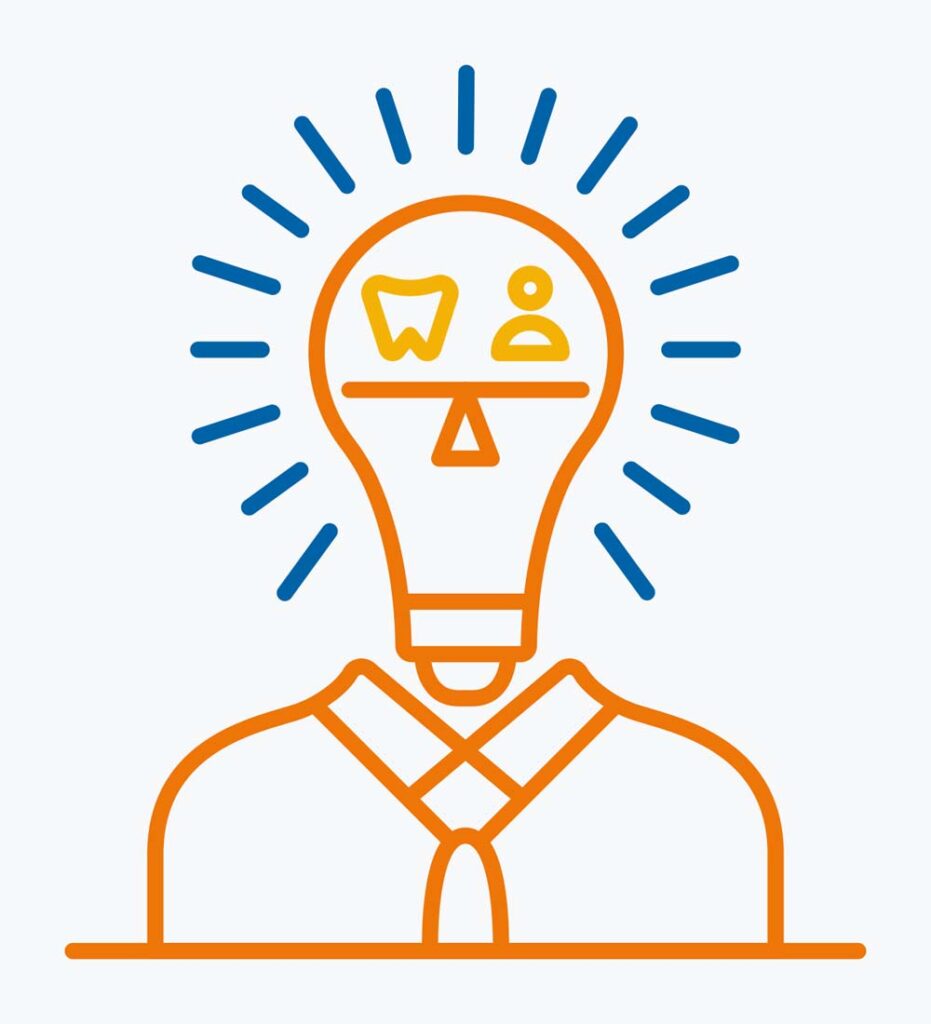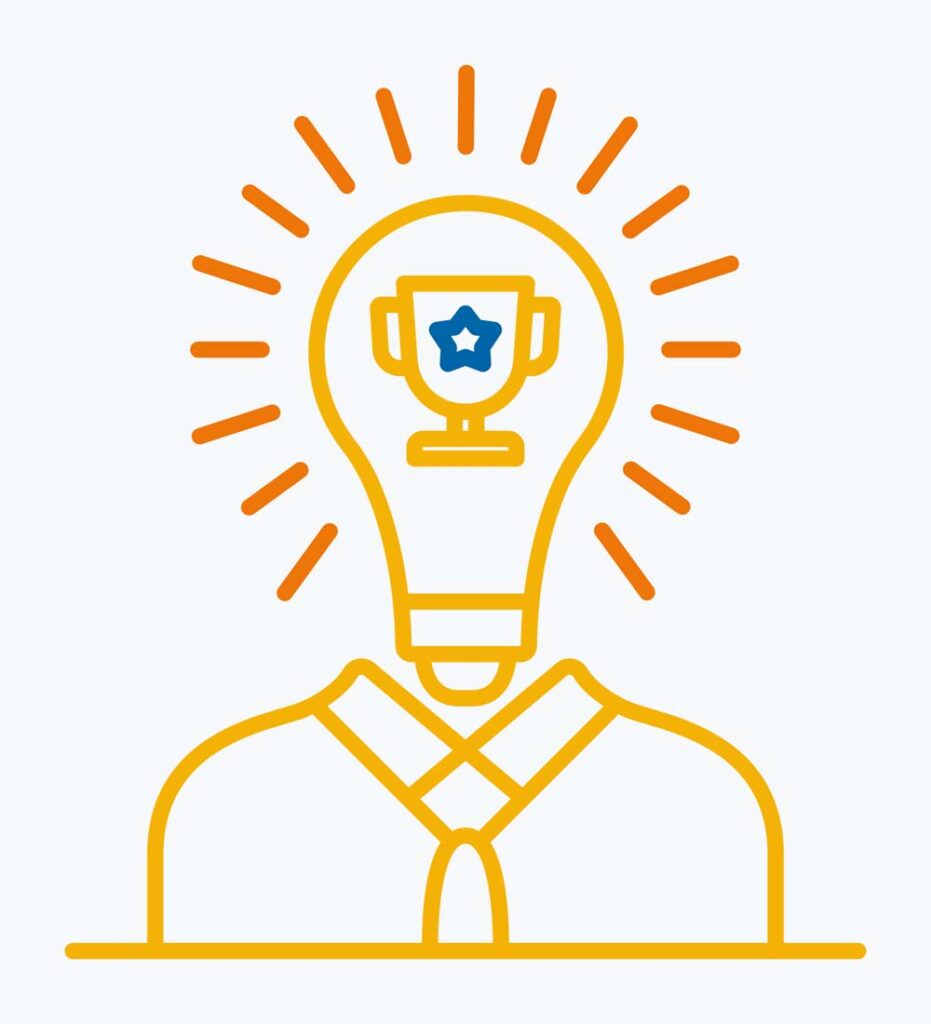Advancing a Shared Vision of Research, Equity and Student Success
By Kirsten Mickelwait
Among Dr. Nader A. Nadershahi’s early priorities as dean of the Arthur A. Dugoni School of Dentistry was the expansion of a shared vision for improving health and wellness through innovative programs, partnerships and people. “The dream has been to do this by investing in the success of our students and residents, by improving the technologies and techniques of our profession and by expanding our role in improving public health,” he says.
Today, that ambitious dream has taken shape through three very different centers on the dental school’s campus. These initiatives are driving research, promoting healthcare equity and enhancing the potential of every dental student who studies here.
Center for Innovation and Translation
Photos by Chris Woodrow
Formally launched in 2022, the Center for Innovation and Translation (CIT) is the school’s research and innovation hub, fostering internal and external collaborations to translate clinical research into both practice and commercial enterprise. Included in the center’s ambitious goals are facilitating pilot projects that will attract funding for translational and clinical research, parlaying discoveries into industry partnerships and engaging faculty and alumni in practice-based and evidence-based research and innovation.
One significant achievement was a recent $3.8 million grant from the National Institutes of Health/National Institute of Dental and Craniofacial Research awarded to Dr. David Lam, associate dean for medical integration, chair of the Department of Oral and Maxillofacial Surgery and the Dr. T. Galt and Lee DeHaven Atwood Endowed Professor, and Dr. Rebecca Moazzez, CIT director, professor and the Henry Sutro Family Endowed Chair of Restorative Dentistry. The grant supports a collaboration between the dental school and Stanford University to create an academic research program. CIT is managing the award and overseeing its work.
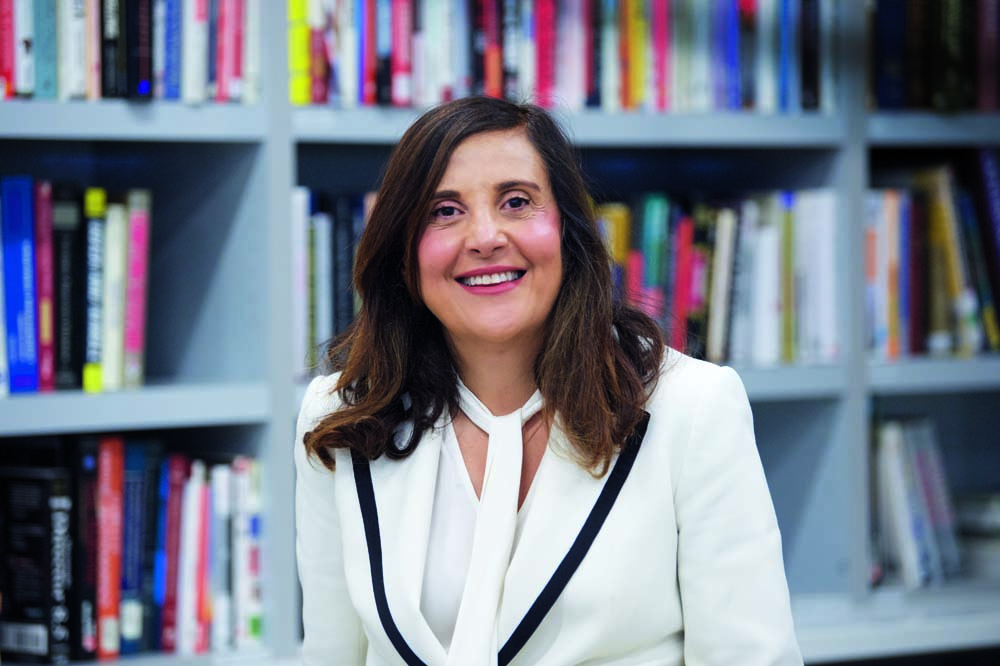
Dr. Rebecca Moazzez 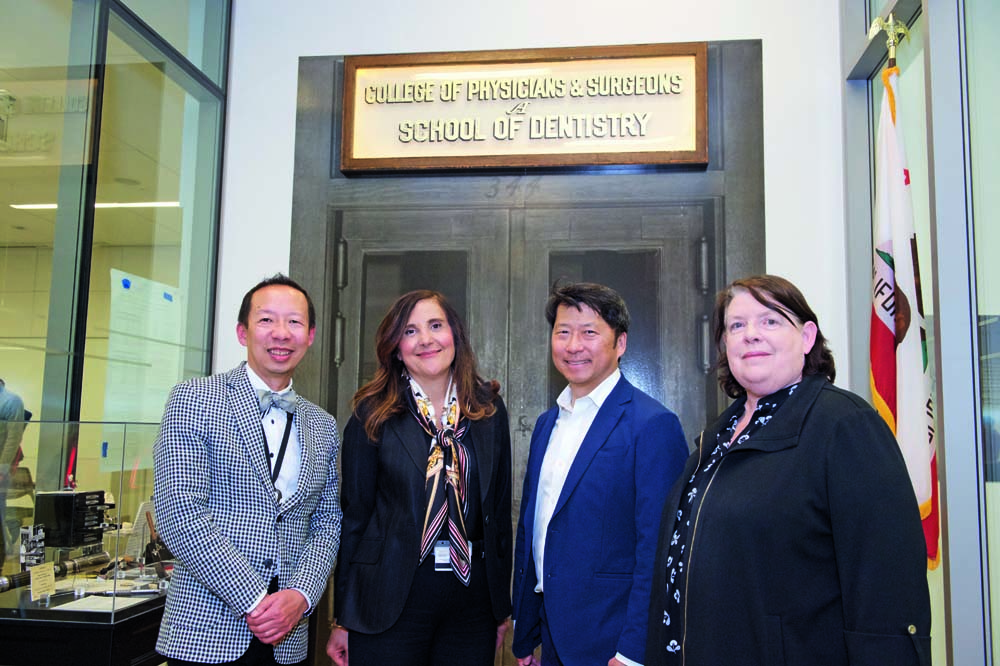
Drs. David Lam and Rebecca Moazzez with Drs. John Sunwoo and Ruth O’Hara from Stanford School of Medicine 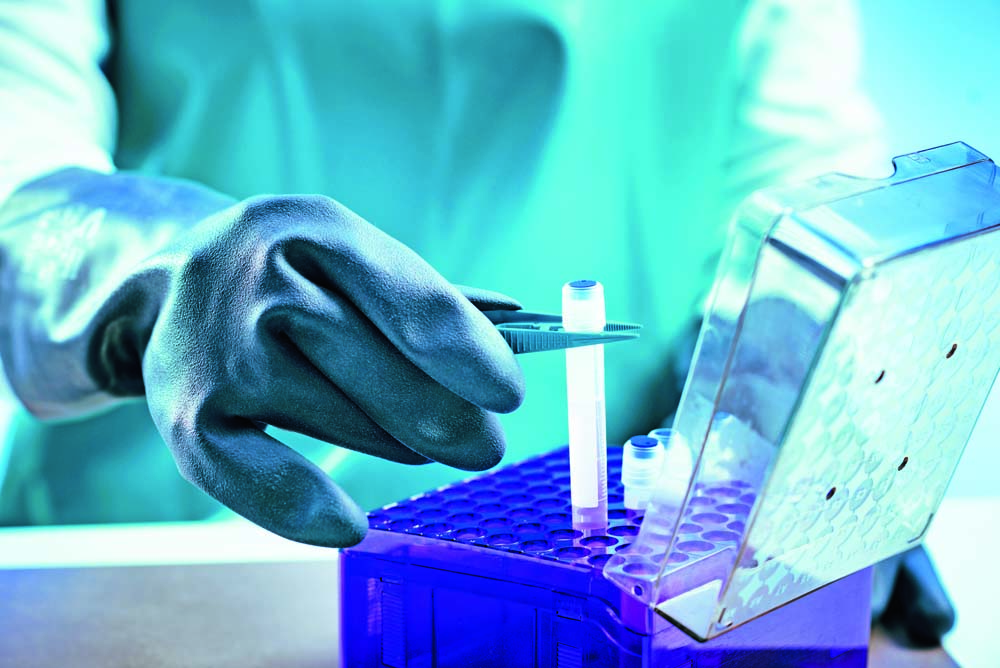
“It’s a massive change in our research culture to train future generations of dental students, residents, faculty and alumni in clinical research,” says Moazzez, director of the center. Each year for five years, all 192 first-year DDS and IDS dental students will receive fundamental clinical research training. In addition, 20 faculty, 20 alumni and 15 students will receive more comprehensive training in clinical research.
“It’s quite exciting for students to be involved in the forefront of new discovery early in their careers,” says Dan Abrahams, CIT’s associate director. “There’s so much health technology coming from here in Silicon Valley, and we can really contribute to that.”
As well as educating and training the next generation of clinical researchers, the program will investigate three different clinical research elements, including sleep medicine and oral cancers. The third focus will be the Pacific- Stanford Biobank, which will collect saliva and blood samples and related data. The dental school will operate as a satellite unit of the Stanford Medical School’s established biobank. This will create an unprecedented level of patient sampling, clinical assessment and investigation, including big-data analysis to find links between oral and systemic health; salivary diagnostics to improve diagnoses and treatments; research into salivary biomarkers through metagenomic analysis; and other studies of the oral microbiome. “This is invaluable for our investigators,” Moazzez says, “It will facilitate future research studies and the ability to access these samples readily. The biobank will enable us to work more efficiently and carry out high-quality and well-designed research using existing samples connected to patient data, demographics and medical histories.”
In the commercial arena, CIT is working with several start-up companies on research and development in areas such as caries detection using AI, early detection of oral cancer and developing “clean” oral hygiene products without the additives found in traditional brands. The center is also collaborating with Pacific’s Department of Chemistry in Stockton, synthesizing proteins of the pellicle, as well as developing an EdTech tools study with a company that manufactures dental implants.
Moazzez’s vision for the future is to build CIT into the top-ranked dental research center in the nation, enabling scientists and companies to bring their most innovative ideas to fruition. Another goal is to generate enough income to create a scholarship fund that will reduce the cost of a premier dental education for students in need of such support—a particular dream of Dean Nadershahi. “The Dugoni School is renowned for educating excellent clinicians,” says Moazzez. “Clinical teaching, patient care and education have always been the focus, and that will remain the focus. But this extra layer of clinical research, innovation and translation is a game- changer. It’s so exciting that we’re able to improve both education and patient care, and also make valuable contributions to science.”
Pacific Center for Equity in Oral Health Care
For some individuals, good oral health care is a luxury far beyond their reach—a lack of access that can lead to serious and long- term health problems. Such disparities in care have long been addressed by the Dugoni School of Dentistry’s legacy of humanism, shining a light on vulnerable communities’ challenges in accessing dental care and developing resources to address these obstacles.
The Pacific Center for Equity in Oral Health Care has focused on special care since its foundation in 1990 as the Pacific Center for Special Care. Today, it continues to create programs to address a broad scope of disparities, to diversify the dental workforce and to advocate for policies that increase accessibility and improve health outcomes for populations that have persistently suffered from poor oral health.
Led by Dr. Elisa Chávez, director and professor in the Department of Diagnostic Sciences, the center’s mission is built upon a three-pronged strategy: 1) preparing students to provide care for complex and diverse populations in interprofessional settings; 2) intentionally developing a demographically and professionally diverse workforce; and 3) influencing policy and programs that increase resources for oral health care and create innovative strategies to improve overall health outcomes.
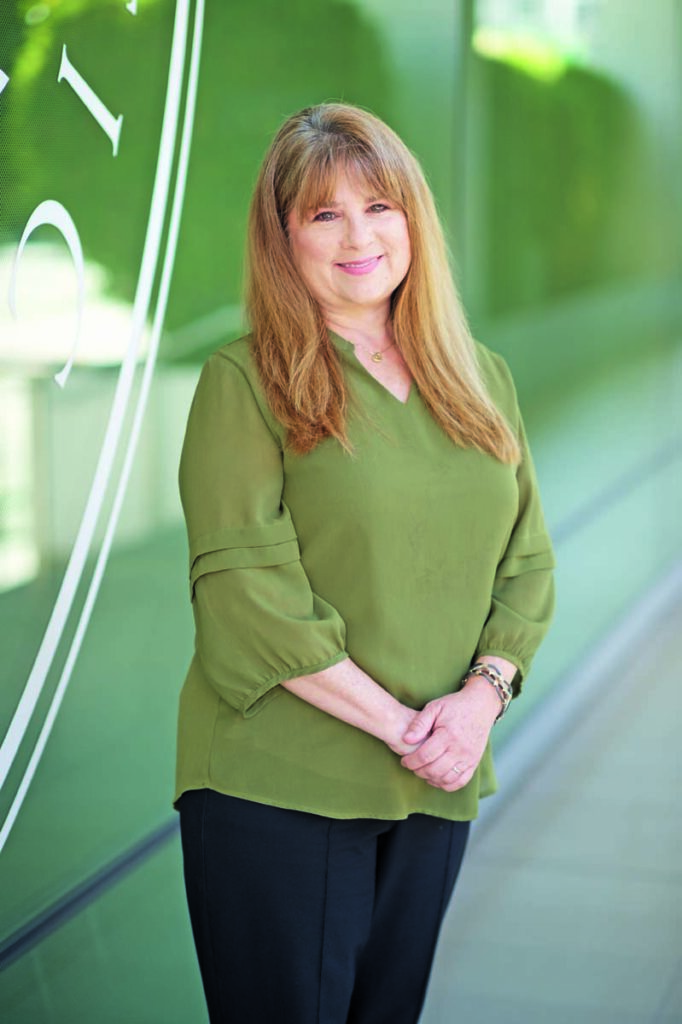 Dr. Elisa Chavez. Photo by Chris Woodrow
Dr. Elisa Chavez. Photo by Chris Woodrow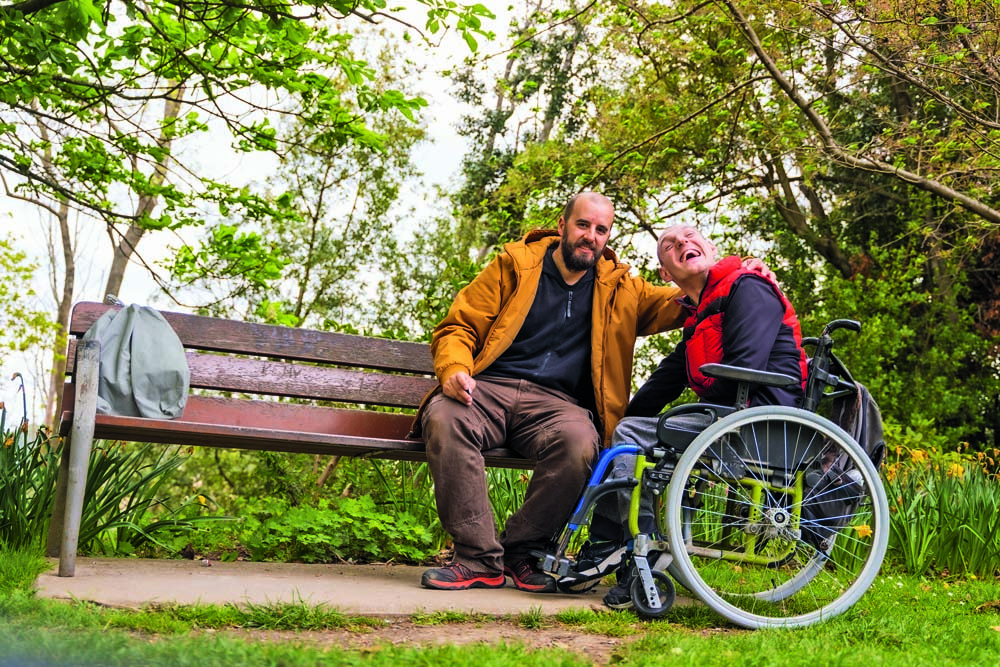 Photo credit: iStockphoto
Photo credit: iStockphoto Photo credit: iStockphoto
Photo credit: iStockphoto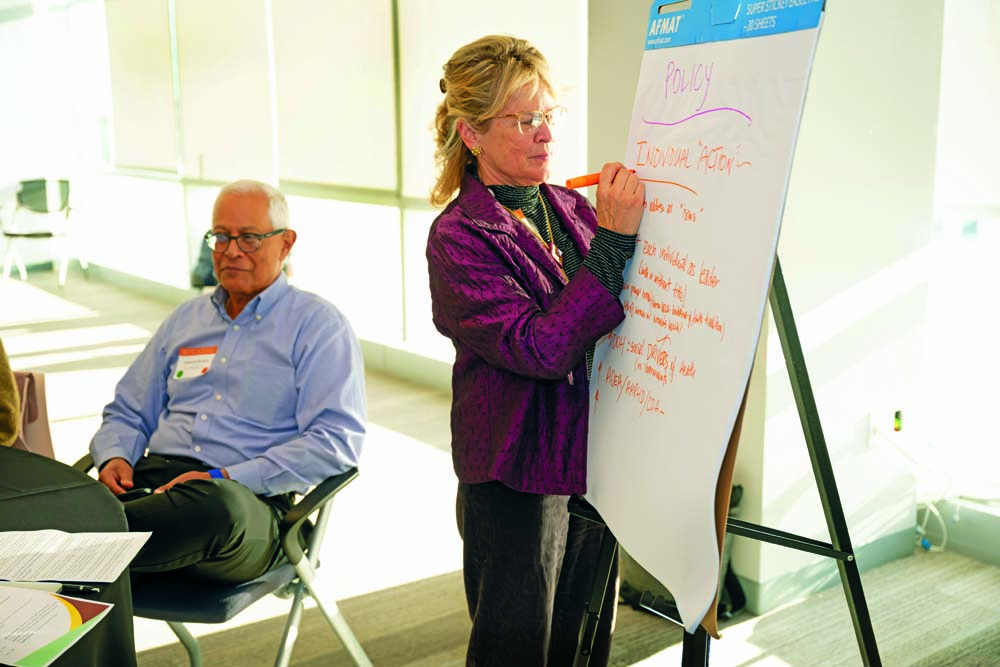 Photo by Jon Draper
Photo by Jon Draper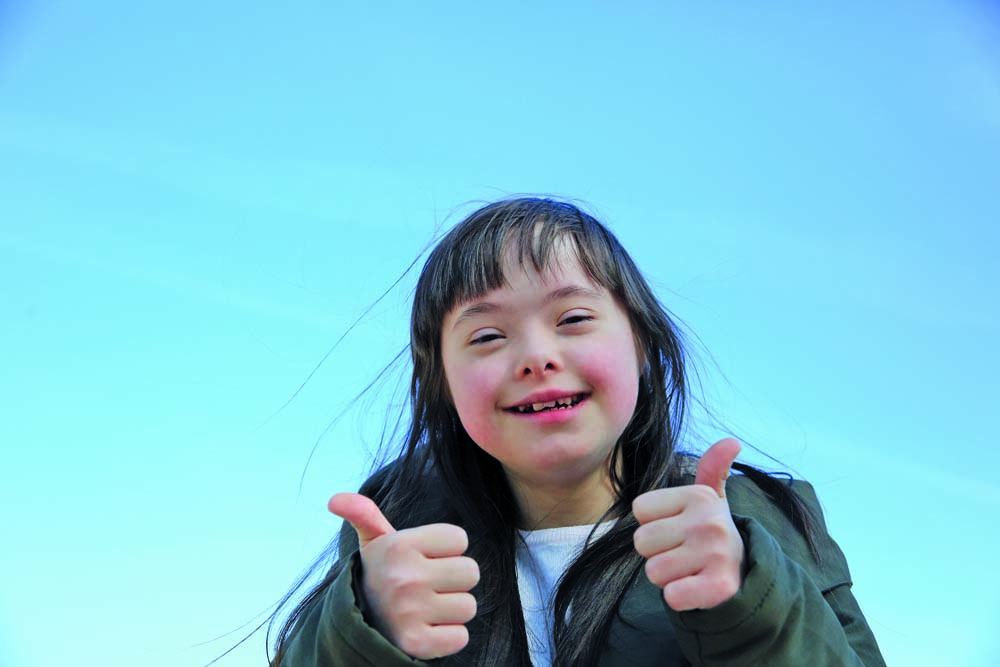 Photo credit: iStockphoto
Photo credit: iStockphoto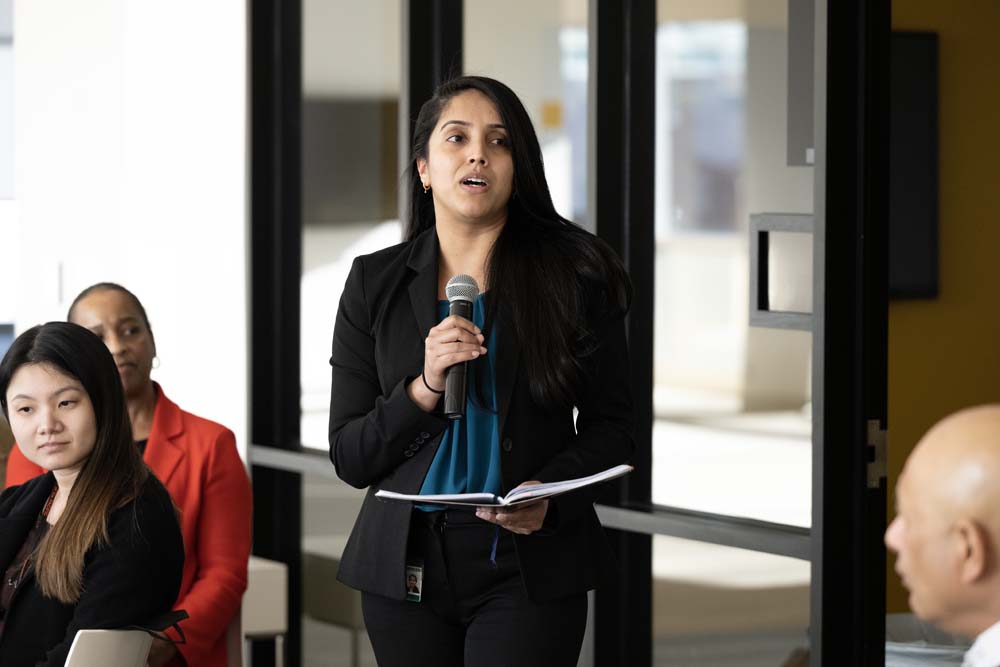 Dr. Ritika Jaiya /23 at the Racism and Bias in Dentistry symposium. Photo by Jon Draper
Dr. Ritika Jaiya /23 at the Racism and Bias in Dentistry symposium. Photo by Jon Draper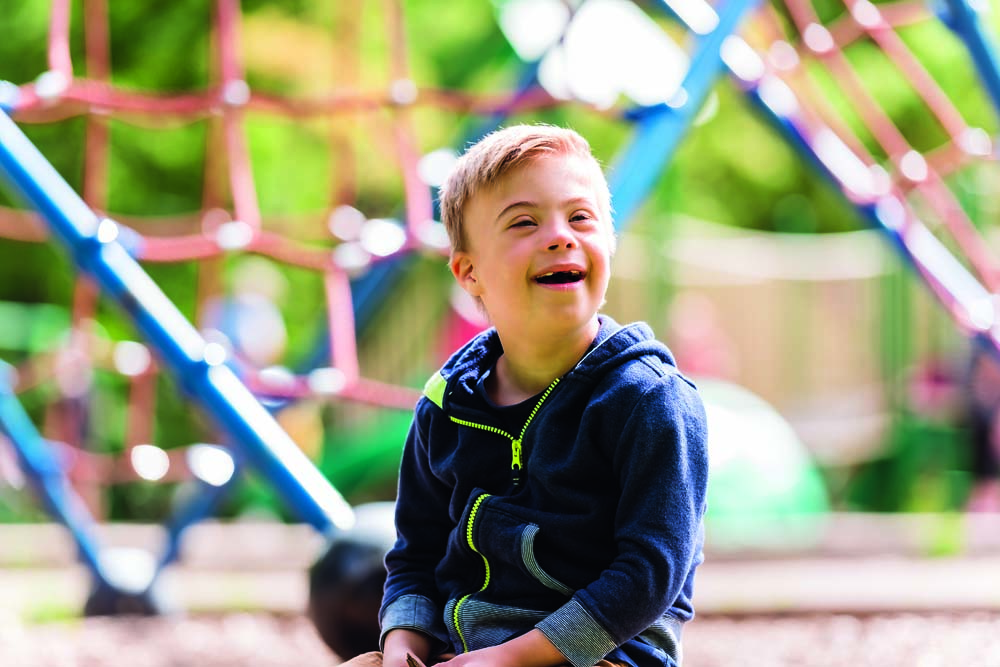 Photo credit: iStockphoto
Photo credit: iStockphoto
The center’s work includes promoting and developing interprofessional models of care delivery by allowing the dental school’s students and faculty to learn and practice in nontraditional settings such as schools, community health centers and long-term care facilities. Recently, the school was awarded the first community-based dental education grant established by the California Legislature and administered by the California Dental Association Foundation. These grants will allow expansion of the school’s extramural community rotations, thereby increasing access to care through partnerships with Federally Qualified Health Centers across California.
The school has also recently received a Dental Faculty Loan Repayment Award from the Health Resources and Services Administration to recruit and retain a diverse dental faculty. This award supports faculty members who are dedicated to teaching students to care for a broad spectrum of patients—from pediatrics to geriatrics, individuals who are medically compromised and those with developmental or acquired disabilities—as well as faculty who will address issues of diversity, equity, inclusion and belonging through their teaching.
“The center is here to support and strengthen not only our educational programs but our relationships with and impact on the communities we serve, keeping top of mind those who are most vulnerable or underserved,” says Chávez.
The Pacific Center also hosts educational events such as its Racism and Bias in Dentistry symposium held at the Dugoni School in January 2023. Its second symposium, Aging and Oral Health – The Long Game, will be held in February 2025 at the university’s Sacramento campus. The center also launched a new series of Overcoming Obstacles learning modules, available in several languages, aimed at improving the oral health literacy of providers of dependent older adults.
“The work of the center depends on the knowledge and skills of many,” Chávez says. “The most exciting part for me is the potential to grow relationships with old and new partners, inside and outside of the university. Collaboration brings new opportunities to enrich educational experiences for our students and reduce disparities and inequities in oral health care and our profession.”
Center for Success
It’s well known that the Dugoni School of Dentistry offers an outstanding education—but many other factors contribute to a student’s ultimate professional achievement. The Center for Success is an invaluable campus resource that aims to improve a student’s transition from classroom to clinic operatory and into the real world, providing opportunities and advice for every stage of his/her dental education and early career.
Working with the Office of Student Services and the Alumni Association as well as outside organizations, the center helps current dental students, hygienists and residents establish mentoring relationships with alumni and others in the profession. It serves as a hub for information regarding job employment opportunities as well as practice transition and support services through the different phases of practice. It also serves as a nucleus for alumni and friends interested in mentoring, thereby paying forward to future graduates the rewards of a dental career.
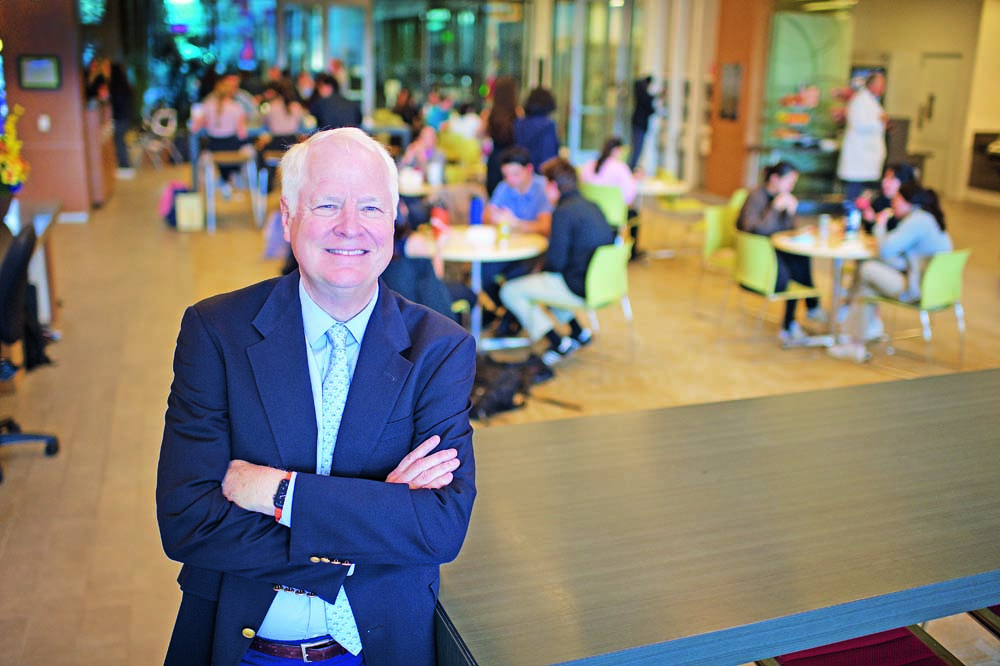 Dr. Craig Yarborough. Photo by Chris Woodrow
Dr. Craig Yarborough. Photo by Chris Woodrow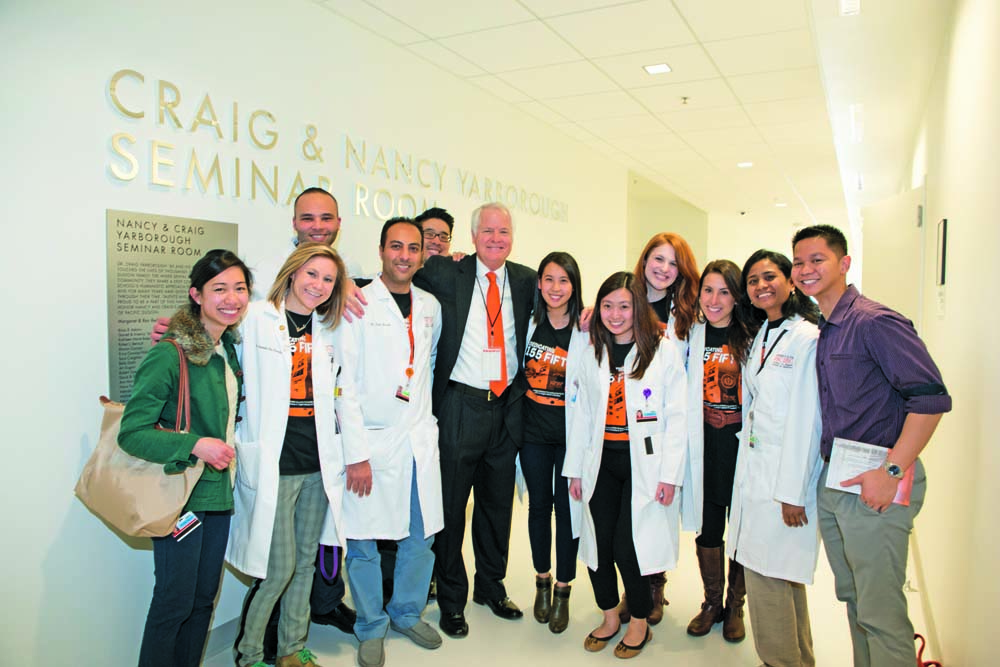 Photo by Jon Draper
Photo by Jon Draper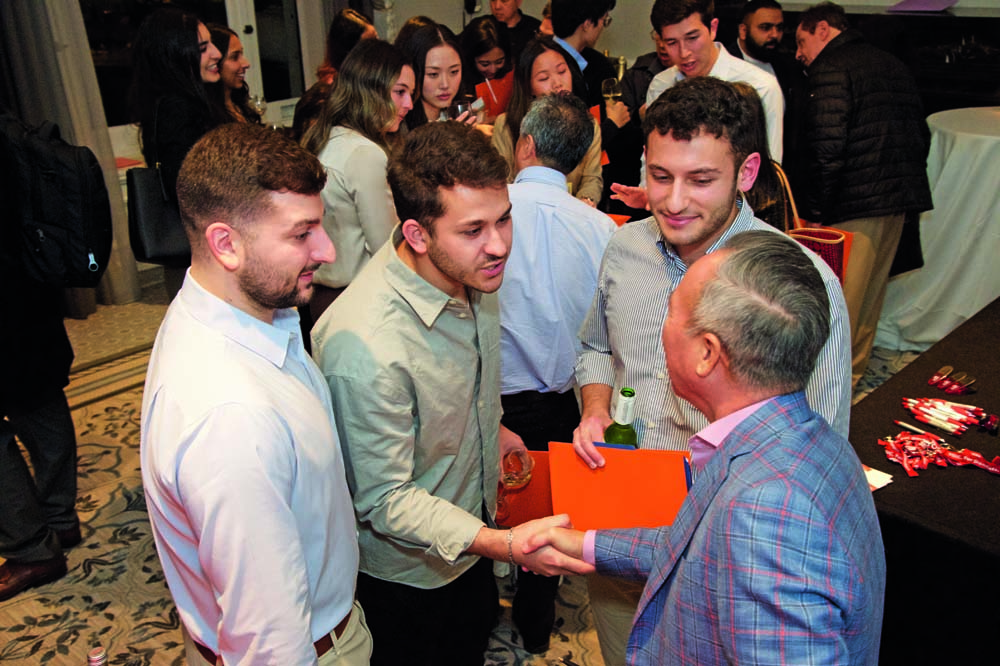 Students meet Dr. Michael Njo ’89 at the Dugoni Business Club Networking Night during the 2024 Alumni Meeting. Photo by Chris Woodrow
Students meet Dr. Michael Njo ’89 at the Dugoni Business Club Networking Night during the 2024 Alumni Meeting. Photo by Chris Woodrow
“About 50% of our students would say that we’re the place where their institutional evaluations were written to help them get into a specialty or postdoctoral residency program,” says Dr. Craig Yarborough ’80, who serves as director and associate dean for institutional advancement. “There’s another group who’d say that we connected them with a mentor. And others would say that we helped them decide what they should do after graduation and how they could find a job. I’d guess that around 75% of our students are probably touched by the center in some way along their paths of professional development.”
Most dental students first learn about the Center for Success during Matriculation Week activities, but it might take them a while to realize how useful it can be. Then they’re often reminded about the resource through word of mouth by other students.
“He quotes a popular saying from the school’s namesake, Dr. Arthur A. Dugoni. ‘ We grow people, and along the way they become doctors.”
“Usually, during the first year, students are keeping their noses to the grindstone, just focused on getting through their biomedical courses, preclinical labs and anatomy,” Yarborough says. “Then in the second or third quarter, when they’ve gotten into the academic rhythm, they often lift their heads up and ask, ‘I wonder what else is offered? What are some value- added experiences I can use to enrich my path?’ My job is to provide them that pathway to success.”
That value-added factor is one of the things that sets the Dugoni School of Dentistry apart from other dental schools, Yarborough says. “Our approach seeks to make a student into not just a capable dentist, but also a good person—and a successful person.” He quotes a popular saying from the school’s namesake, Dr. Arthur A. Dugoni. “We grow people, and along the way they become doctors.” Yarborough adds, “The Center for Success will help you become a successful person—whether it’s in your family, your community or in the profession itself. That’s the center’s ultimate goal.”
Dean Nadershahi is clearly proud of the work being done across these three broad arenas. “I’m very grateful to Drs. Chávez, Moazzez and Yarborough for answering the call and leading our three centers while living the shared values of courage, excellence, innovation and leadership,” he says. “I look forward to supporting their important work, which touches the lives of thousands of individuals in the Dugoni School family and across our broader communities.”
Kirsten Mickelwait is a San Francisco-based copywriter, content provider and professional storyteller.



